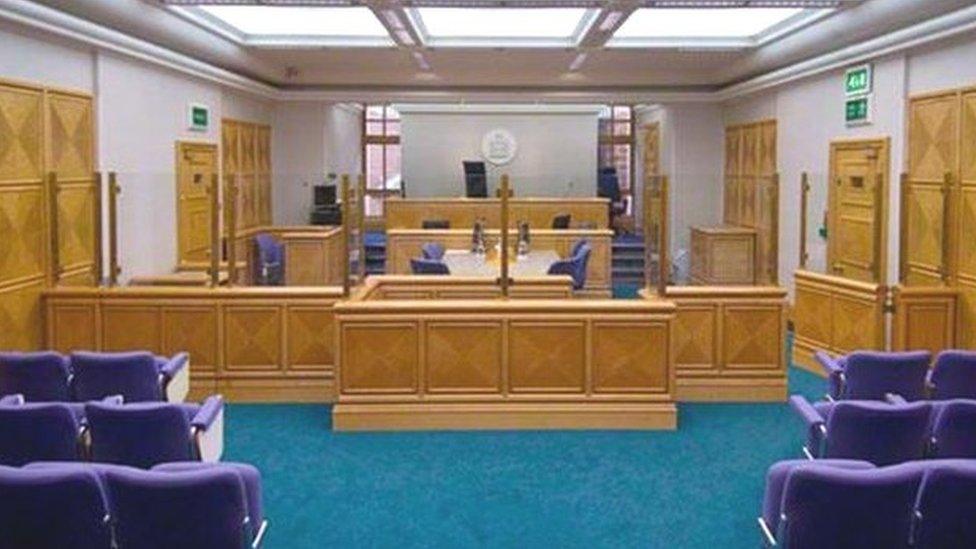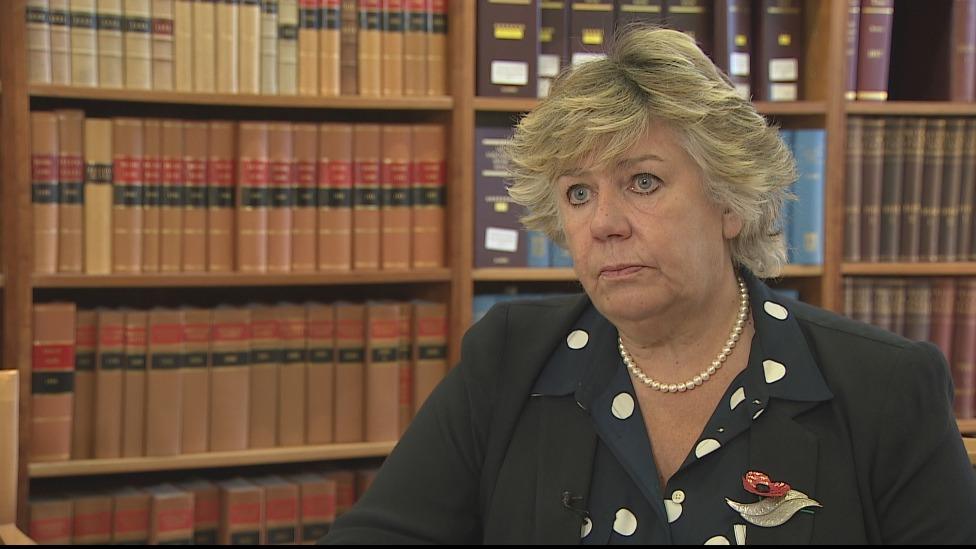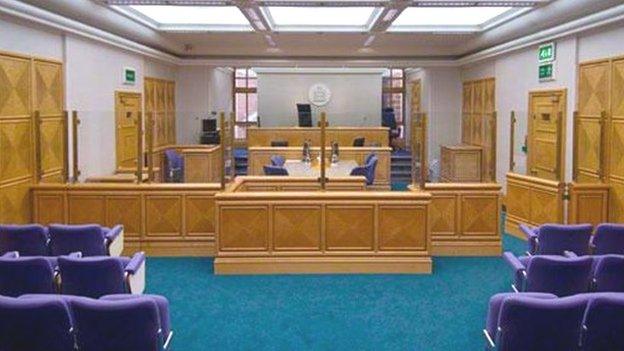Judges approve 'historic' court sentencing guidelines
- Published

The guidelines follow a three-month public consultation
Scotland's first sentencing guidelines for all offenders have been approved by three senior judges.
The document, which follows a consultation, sets out the general principles and purposes of sentencing.
Lady Dorrian, chairwoman of the Scottish Sentencing Council, described them as a "historic moment".
Over the next three years it will assess the sentencing process for young people, causing death by dangerous driving and wildlife crime.
Lord Carloway, Lord Brodie, and Lord Drummond Young approved the guidelines, external, which will come in to force on 26 November.

Lady Dorrian said the guideline marks a new approach to sentencing
Lady Dorrian, who is also the Lord Justice Clerk, said: "The approval of Scotland's first sentencing guideline marks a new approach to supporting sentencing consistency and decision making.
"The fundamental principles and purposes of sentencing have never before been expressly defined in Scotland, and we believe that this first guideline will have significant benefits both to the public and the courts.
"The guideline sets out a core principle of 'fairness and proportionality' which we consider underlies all sentencing decisions, and purposes which sentencing may seek to achieve, such as rehabilitation, protection of the public, and punishment."
Lady Dorrian said it draws on expertise and research from across Scotland and other jurisdictions, including a three-month public consultation.
She said key purposes of sentencing identified in the consultation included "protection of the public" and "rehabilitation of offenders".
Sexual offences
It also highlighted the impact of the offence on others affected as well as the victim.
Lady Dorrian said the guidelines must always be evidence based.
The council's business plan for 2018-21 revealed developing guidelines on sexual offences and sentence discounting will be part of its planned programme for the next three years.
It will also focus on sentencing young people, causing death by dangerous driving and environmental offences.
Lady Dorrian said: "Sexual offending has increasingly become an area of public concern in recent years, with increased reporting, prevention and enforcement action.
"Sexual offences account for a high proportion of sentencing, particularly in the High Court, often involving difficult decisions in complex circumstances.
"This is an area of great public importance in which we believe a guideline or guidelines would bring significant benefits to the judiciary, those who have been involved in such cases, and to the wider public."
Sentencing discount
It also aims to provide clarity on areas around sentence discounting.
Lady Dorrian added: "Support and advocacy organisations tell us that victims and their families sometimes find it difficult to understand why a discounted sentence has been given in certain circumstances and there is anecdotal evidence from practitioners that a guideline would also provide greater predictability for accused persons."
The plan also confirms that council will explore the subject of sentencing people with mental welfare issues and carry out work in relation to the new domestic abuse offence, when it is brought into force.
When sentencing an offender, a judge must have regard to any relevant sentencing guidelines in relation to the case.
If judges decide not to follow the guidelines, they must state their reasons.
- Published19 October 2015
